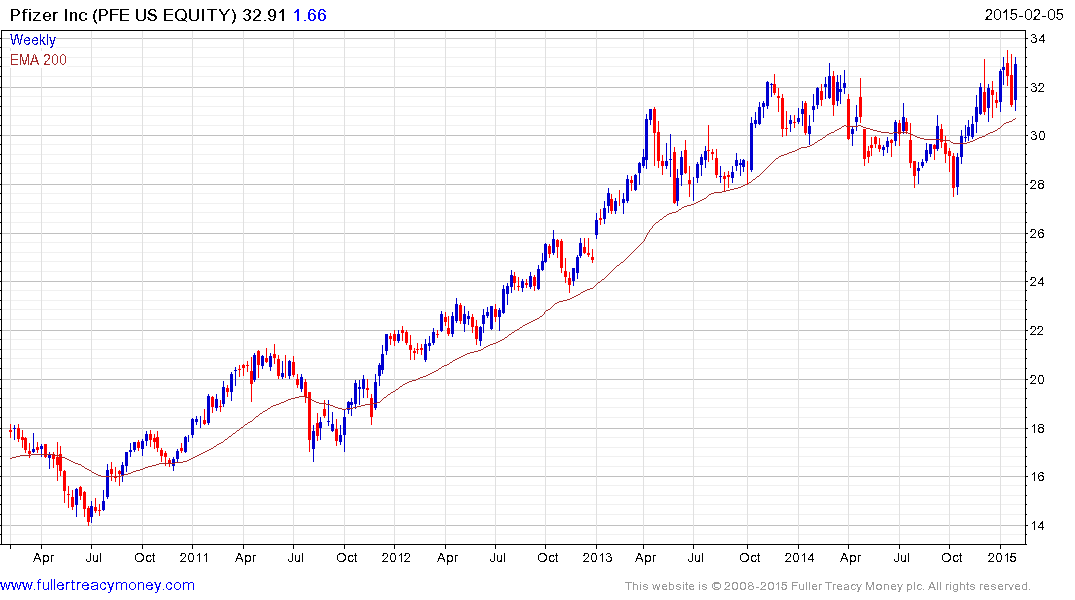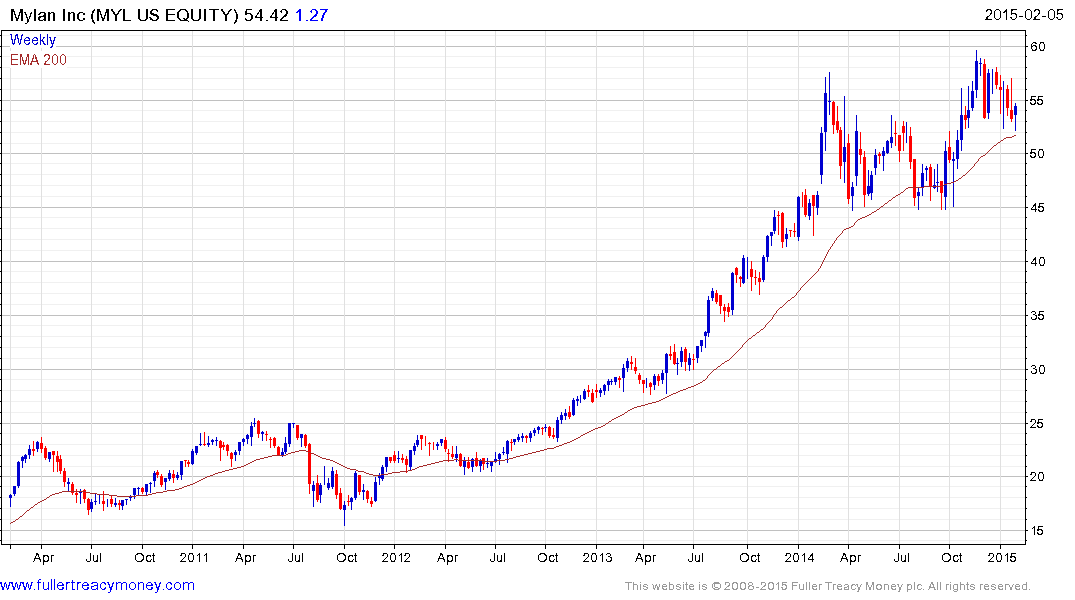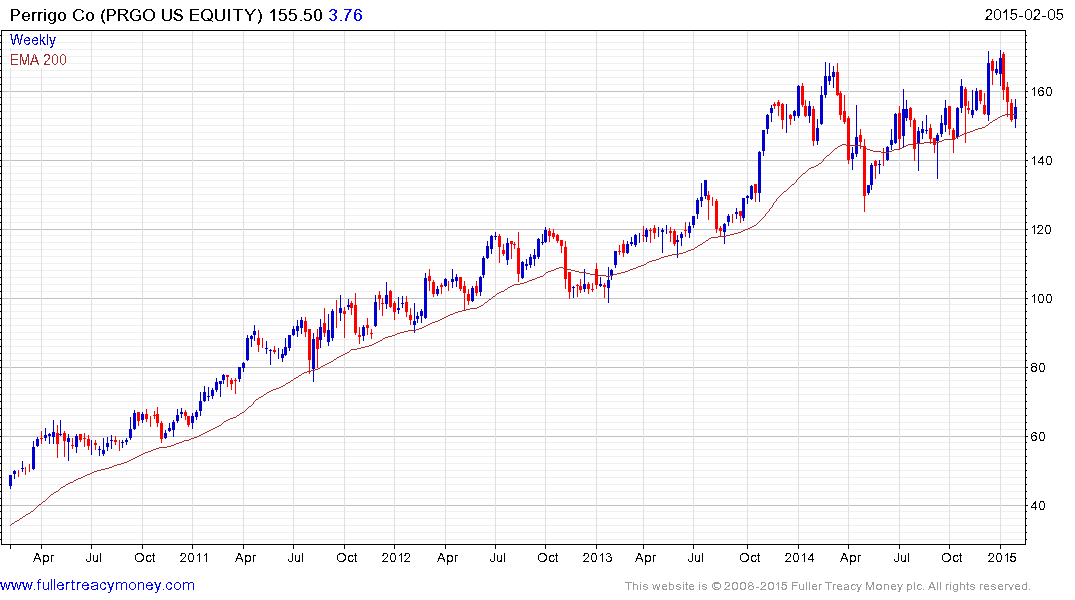Pfizer to Buy Hospira for $16 Billion
This article by Jonathan D.Rockoff may be of interest to subscribers. Here is a section:
Hospira is among the leading companies selling injectable drugs and biosimilars. In fact, Hospira is one of the first U.S. drug makers selling biosimilars in Europe and Australia. Hospira, of Lake Forest, Ill., had $4.4 billion in revenue last year, according to Pfizer.
The deal would give Pfizer, which has been trying to build up its own businesses in those areas, the opportunity to expand and take leading positions in fast-growing markets, according to Mr. Read. “The puzzle pieces come together in a very nice way,” he said in an interview.
Pfizer estimates the global marketplace for generic sterile injectables is estimated to be $70 billion in 2020, while the marketplace for biosimilars is estimated to be about $20 billion by that time. Pfizer had $49.6 billion in sales last year.
Pfizer will add Hospira, which is based in Lake Forest, Ill., to its global established pharma business, which includes generic products as well as growth opportunities such as biosimilars and injectables. The business had $25.15 billion in revenue last year.
The healthcare sector represents powerfully inspiring trends which can be split down into three main themes. These are innovation, availability and elder care. Let’s focus for the moment on the first two.
To an extent the pharmaceuticals sector has ceded the role of innovation to biotechnology companies. The trade-off is that they save money on expensive but uncertain R&D, but pay up for success stories through M&A activity. As the global middle class expands, per capita income improves and demand for length-of-life enhancing knowhow increases. This creates demand for highly expensive innovative solutions and large pharmaceutical companies have the marketing heft to sell them globally. Additionally, demand for generic alternatives to some of their previous bestsellers is on a similarly powerful growth trajectory. Rather than limiting supply and keeping prices high behind a patent wall, the generic strategy is to “pile um high, sell um cheap”.
For companies like Pfizer that would have historically focused on innovation, the acquisition of a generics company such as Hospira represents a further expansion into the availability theme. Mylan’s acquisition of Abbot Laboratories Dutch unit serves the dual purpose of minimising US taxes and expanding its global generic drug franchise.
Clicking through the constituents of the Generic Pharmaceuticals section of the Chart Library, a high degree of commonality is evident. A number of emerging market shares are currently overextended relative to their respective 200-day MA. Meanwhile Mylan, Perrigo and Pfizer share a similar pattern.



All three have found support in the region of their respective 200-day MAs and sustained moves below them would be required to question medium-term scope for additional upside.
Back to top


